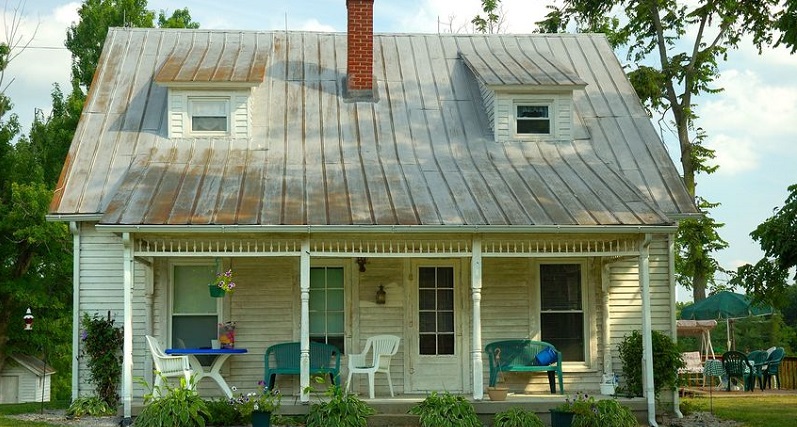A fixer-upper’s value before renovation doesn’t depend so much on the state of the local New Orleans real estate market. But what happens after you buy and renovate the house does.
It depends. Is it worth your effort? Are you prepared to tackle renovations and their costs?
A 300-year-old city is heaven for people who love historic homes and enjoy restoring them. Plus, purchasing a home that needs a little love can wind up saving you money. Buying a fixer-upper is a popular way to invest in New Orleans real estate, but do you have what it takes to create a home you’d want to live in? Here are some pros, cons, and tips in case you’re deciding whether buying a fixer-upper is right for you.
The Pros
The immediate benefits of purchasing a fixer-upper include:
- Saving money. Once repaired, fixer-uppers typically end up costing about 8 percent less than comparable, renovated homes.
- Adding value to your home. Ideally the house will be worth more than you paid for it, should you decide to sell.
- Paying less in property taxes, for the first year or two at least, because taxes on recently purchased homes are calculated based on a home’s sale price.
- Creative freedom to renovate, build, remove, and design however you please.
- Tax incentives for renovating a historic home. Louisiana offers the 18.5% State Residential Tax Credit Program (this one is for owner-occupied historic structures).
The Cons
The potential drawbacks depend on the state the property is in and how realistic you’re being about the cost of fixing it up, among other factors, including:
- Renovations could end up costing more than anticipated.
- Most fixer-uppers are not move-in ready, and it could take a while to complete renovations.
- Real estate market fluctuations could make the purchase unprofitable.
What to Consider Before Buying a New Orleans Fixer-Upper
A fixer-upper’s value before renovation doesn’t depend so much on the state of the local real estate market. But what happens after you buy and renovate does. That’s why it’s important to choose well, be realistic about your financial capabilities, conduct all the necessary professional inspections, and evaluate the repairs correctly. Here are some steps you can take to decide if the house is worth buying:
- Do home inspections. Have a credentialed home inspector evaluate the property to determine the house’s value and the extent of necessary repairs. Some costly structural issues — for instance with the roof or foundation — might not be immediately obvious to an untrained eye. Inspections could include a roof certification and sewer line/septic tank inspections, as well as checking for pests and contamination hazards like lead and asbestos.
- Get a cost estimate for repairs and renovations. This will heavily influence your decision to buy. Plus, it will help you determine the resale value of your house post-renovation. It’s advisable to get multiple quotes for repairs.
- Do your homework on permits. Depending on the property’s location you might need permits for certain renovations. You can prep by researching which permits you’ll need, if any, how much they’ll cost, and how to get them.
- Decide what you can and cannot do yourself. Most people who take on a fixer-upper have at least some renovation skills and tend to love working on houses. Some repairs, however, are best left to the pros. Getting an idea of which projects you can complete yourself and which you’ll have to pay someone else to do can help determine your budget.
- Be realistic about the time frame. If you delay repairs, the house may continue deteriorating — and losing value. If you think you’re too busy to see the whole thing through, buying a fixer-upper might not be worth it.
- Do the math. On top of the usual costs associated with buying a home, like closing costs, mortgage, maintenance, and so on, the budget for a fixer-upper must also include the cost of repairs. If the house is not habitable, you may have to live elsewhere when you work on the house, another expense you should factor in.
- Anticipate complications. A home renovation typically comes with delays that can pile on additional expenses. You can ease the burden by setting aside some money for when things don’t go as planned, and by staying flexible.
Cosmetic Fixes Versus Run-for-the-Hills Issues
Not all fixer-uppers have potential, but those with a decent layout and without serious structural issues usually do. It also helps if they’re located in an up-and-coming area. The trick is to see past scary-looking issues that might be easy to fix.
For example, problems such as old carpeting, missing fixtures, peeling paint, dated appliances, or broken doors are considered cosmetic and shouldn’t deter you from buying a home. But some problems will be expensive to fix, such as a broken HVAC system, foundation cracks, water damage, a bad roof, or serious plumbing, electrical, or sewer line issues.
Obviously, not all fixer-uppers are created equal. A problem one homebuyer might consider a deal-breaker might be seen as a fun project by another. Decide for yourself how much rehabbing you’re willing and prepared to take on, and enlist the help of a professional real estate agent who can help you find the house of your dreams, one with just the right amount of TLC needed. Our Realtors know potential homes. Many of our Realtors also have extensive experience in renovations and remodels, so we can recommend local professionals worth getting quotes from. Contact us to discuss your New Orleans real estate investment needs and goals.
